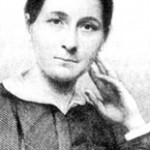 Uncle Willie had a mellifluous voice. On Sunday mornings he could be relied on to fill our little church with sweet tones, while the rest of us screeched old, familiar gospel hymns with grainy and gritty voices, accented by the harsh sincerity of New Yorkers. Uncle Willie was old—really old, not just old from the perspective of a young boy. And how Uncle Willie could sing—he single-handedly carried our choir of six. Uncle Willie could laugh with me, as if he too were twelve years old, as we shared secrets in the back row of the makeshift choir stalls. There was something else about Uncle Willie: he was black. There we were, together, a white twelve-year-old boy with an utter incapacity to sing the tenor line and an old black man with a voice that could inspire the angels. Together we were a community. Uncle Willie and me. Something more was going on between us than either of us could have mustered as individuals—the inability even to consider that age or race could keep us from being friends, for instance.
Uncle Willie had a mellifluous voice. On Sunday mornings he could be relied on to fill our little church with sweet tones, while the rest of us screeched old, familiar gospel hymns with grainy and gritty voices, accented by the harsh sincerity of New Yorkers. Uncle Willie was old—really old, not just old from the perspective of a young boy. And how Uncle Willie could sing—he single-handedly carried our choir of six. Uncle Willie could laugh with me, as if he too were twelve years old, as we shared secrets in the back row of the makeshift choir stalls. There was something else about Uncle Willie: he was black. There we were, together, a white twelve-year-old boy with an utter incapacity to sing the tenor line and an old black man with a voice that could inspire the angels. Together we were a community. Uncle Willie and me. Something more was going on between us than either of us could have mustered as individuals—the inability even to consider that age or race could keep us from being friends, for instance.
Jesus once said, “Where two or three are gathered in my name, I am there among them” (Matthew 18:20). This saying occurs alongside one of the two mentions of the church, the ekklesia, in the gospels (Matthew 18:17; the other mention occurs in Matthew 16:18). Jesus reminds his followers of this: if he can be present among two or three, he is certainly present in the church. He brings us back to community, large or small, and his presence in it.*
Look around apparently thriving churches, and you’ll see that “community” often means sub-groups geared toward people in different stages of life. Most committees are populated by adults. Children’s ministries are for parents of little kids. Then there is youth group and separate groups for “young singles” or “young marrieds.” There are “senior Bible studies” for retirees, too. It’s hard to pass on the faith—passing on implies the active participation of different generations—when people of different age groups don’t engage each other intimately.
The church I grew up in, a small church sandwiched between a TV repair shop and a donut store, wasn’t big enough to have all sorts of sub-groups, so when church experts talk today about becoming a cross-generational church, I have to laugh. That’s all I knew. When there were parties, church people of all ages were there. (And, believe me, that little band of New Yorkers knew how to party; I learned more than just faith–like how to mix a Harvey Wallbanger at a party full of church people.) When there were work days, adults and kids painted walls and doors side-by-side. When there were church picnics at Salisbury Park, we barbecued and played softball together. How else could we field two teams?
And when we worshiped, kids and adults endured the same sermons (an endless hour of them every Sunday morning) together. We figured it made us strong somehow. And it did. The faith stuck for me and my sisters because there was authenticity in this undistinguished band of believers. I remember how Mrs. Fife, our sixty-plus Sunday school teacher, turned, knelt on the floor with her head on the pew, and prayed, right there during the service. There was familiarity, too. We didn’t just know each other’s names. We knew each other’s flaws and problems and worries, from babies born with deformities to old people sick and dying. We teenagers worshiped, worked, prayed, and partied shoulder to shoulder with people seventy years our senior.
There are, we all know, far more distractions for kids nowadays. The church has to compete for their attention, so we separate them into their own enclave and occupy them with age-specific activities and teaching and worship and mission trips. But I learned the faith alongside older people. Like on Wednesday nights, as I listened to Uncle Willie sing, as he and I shared secrets, and as we laughed together in the second row of our makeshift choir stall. Uncle Willie never taught my Sunday School class. He never led me on a mission trip. He never preached a sermon (though I wish he had). Yet Uncle Willie sang and laughed the faith, not just to me, but with me. And that’s one of the ways the faith got passed on to me, in the shared giggles and the angelic tones of my older and wiser friend.
________________________
*These two paragraphs come straight from Fresh Air: the Holy Spirit for an Inspired Life (Paraclete Press, 2012), pages 141-42.












